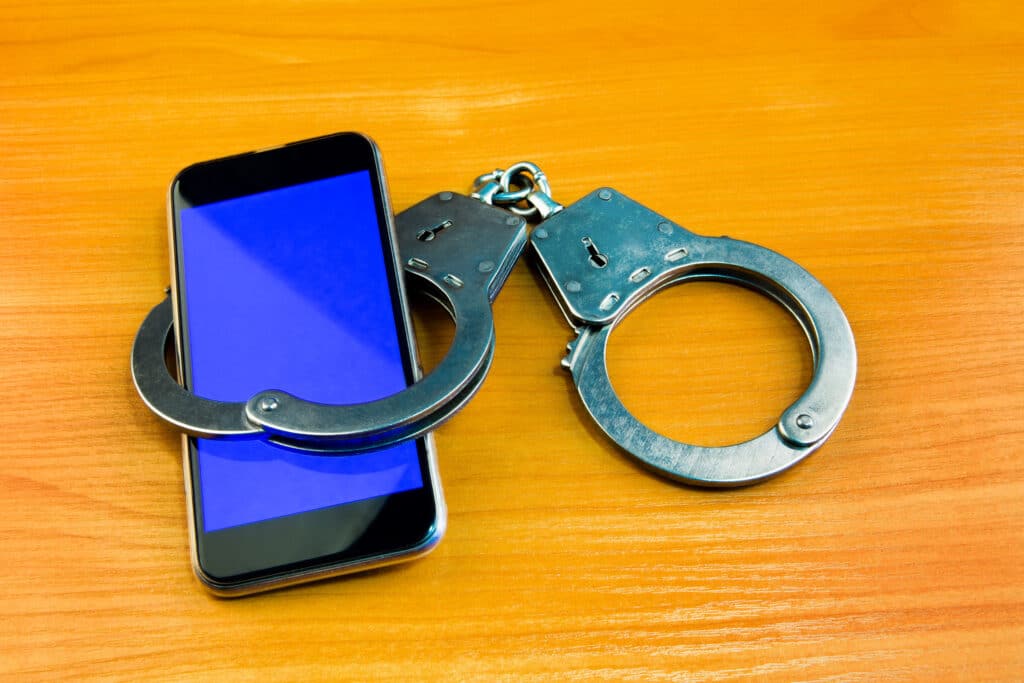Beat Your Denver DUI Charges with Effective Defense Strategies
July 17, 2024

One of the 175 CO DUI Busts Over Super Bowl Weekend? Know This…
Carrying a Firearm While Trafficking Drugs in Colorado
Posted by: Jacob E. Martinez
Category: Criminal Invasion of Privacy | Sex Crimes | Sex Offender Registry
The world is an increasingly crowded and connected place. That may be why the right to privacy is seen as something so precious, especially over the last several decades.
In Colorado, you can be criminally charged with invasion of privacy, which is a concept that someone’s private life has been intruded on by another without their consent.
It’s not a standalone crime but one that has several distinct causes of action that can land you with a felony charge in Colorado.
The best way to avoid charges for criminal invasion of privacy? Understand the law and what could cause you to violate it. Learn more here about the criminal invasion of privacy in Colorado and the types of actions that can potentially expose you to these charges.
The criminal invasion of privacy in Colorado is when a person takes pictures or observes another person’s intimate parts without their consent.
The cornerstone of a criminal invasion of privacy case is that the victim had a reasonable expectation of privacy and did not get it.
The law also defines intimate parts for the purposes of this crime as the genitalia, anus, perineum, breasts, buttocks, or pubic region of any person.
In Colorado, you can be charged with criminal invasion of privacy in several different circumstances.
The law is broken by either directly observing a person or taking photographs (or videos, live feeds, prints, or any other digitally, chemically, electronically, or mechanically reproduced visual material).
These types of crimes often take place in locations where people have an expectation of privacy such as public restrooms, dorm rooms, locker rooms, changing rooms, and their homes.
If someone sets up a camera in any of these places to take pictures or record others, for instance, this is a violation of the law.
Even if the person never sees the videos or pictures, simply the act of attempting to capture them is a violation of the law.
In Colorado, the criminal invasion of privacy is a Class 2 misdemeanor. Class 2 misdemeanors are generally punishable by up to one year in jail and fines of up to $1,000.
However, if it is found that you perpetrated a criminal invasion of privacy for sexual gratification, then you can face a Class 1 misdemeanor. Class 1 misdemeanors are punishable by up to 18 months in prison and fines as well.
When the victim of the crime is under 15 or there are prior convictions on the defendant’s record, then it can be charged as a Class 6 felony. This is also considered a sex offense.
If someone is found guilty of criminal invasion of privacy for sexual gratification, that is a separate offense. Be aware, however, it is considered an extraordinary risk crime and can carry with it increased penalties beyond standard penalties.
If you are found guilty of criminal invasion of privacy for the purposes of sexual gratification, then you can be ordered to register as a sex offender.
As such, any person who is found guilty of that crime will be required to register on the Colorado Bureau of Investigation’s sex offender registry.
Being registered as a sex offender in Colorado carries its own unique set of challenges. This can limit where someone can work or live, for instance, and also can result in additional criminal charges if there is a failure to register.
There are other charges that often go hand in hand with criminal invasion of privacy in Colorado. Depending on the circumstances of the crime, a person can also face charges for crimes such as burglary or trespass.
That’s because often property lines may be crossed in order to perpetuate the invasion of privacy or dwellings or other spaces entered in order to set up equipment or get the material desired by the perpetrator.
That means even a misdemeanor charge for criminal invasion of privacy has the potential to become a felony charge by tacking on additional charges for trespass or burglary.
Civil charges can also be filed against someone for an invasion of privacy. Civil charges don’t resemble criminal charges. For example, for civil charges, it’s not necessary to prove that the defendant invaded the victim’s privacy without their consent.
Criminal invasion of privacy can be a confusing charge, which is why understanding your rights and the charges against you are important to establishing an effective defense.
About the Author:
Denver-based criminal defense and DUI attorney Jacob E. Martinez is a knowledgeable and experienced litigator with a record of success providing innovative solutions to clients facing criminal charges of any severity. Mr. Martinez has been recognized by countless legal organizations for his exemplary defense work, including Avvo, Best DWI Attorneys, Expertise, Lawyers of Distinction, The National Trial Lawyers, and others. He was also named one of the 10 Best in Client Satisfaction in Colorado by the American Institute of Criminal Law Attorneys for 2020 and is Lead Counsel rated.
Jury Trial - Not Guilty
Jury Trial - Not Guilty
Arapahoe 1st Degree Assault/Vehicular Assault
Jury Trial - Not Guilty
Denver Domestic Violence Assault Case
Jury Trial - Not Guilty
Denver D.V. Assault
Jury Trial - Not Guilty
Denver Careless Driving Resulting in Death
Jury Trial - Not Guilty
Jefferson County Felony Menacing
Jury Trial - Not Guilty
Adams County DUI
Jury Trial - Not Guilty
Jefferson County DUI
Jury Trial - Not Guilty
Jefferson County DUI
Jury Trial - Not Guilty
Jefferson Vehicular Assault/DUI
Jury Trial - Not Guilty
Jefferson County DUI
Jury Trial - Not Guilty
Boulder County DUI case
Jury Trial - Not Guilty
Arapahoe County DUI case
Jury Trial - Not Guilty
Adams County DUI case
Jury Trial - Not Guilty
Douglas County DUI case
Jury Trial - Not Guilty
Gilpin County DUI case
Dismissed
Broomfield County Probation Revocation case
Dismissal
Arapahoe County DUI case
Deferred Judgment
Arapahoe County DUI case
Deferred Judgment
Douglas County DUI case
Deferred Judgment
Larimer County DUI case
Deferred Judgment
Arapahoe County DUI Case
Deferred Judgment
Denver Felony Burglary Case
Deferred Judgment
Arapahoe County DUI case
Dismissed
Arapahoe County Protection Order Case
Dismissed
Golden Destruction of Property case
Dismissed
Jefferson County Protection Order case
Dismissed
Jefferson County Domestic Violence case
Dismissed and Sealed
Jefferson County DUI case
Dismissed
Denver Major Traffic Offense case
Dismissed and Sealed
Broomfield County Domestic Violence case
Dismissed
Summit County DUI Revocation
Dismissed
Denver DUI Revocation
Dismissed
Denver DUI Revocation
Dismissed
Denver DUI +.2 Involving Accident and Injury case
Dismissed
Denver DUI/Habitual Traffic Offender case
DISMISSAL
Denver District Aggravated Theft
Dismissed
Greenwood Village Assault case
Dismissal
Elbert County DUI
Dismissed
Arapahoe County Domestic Violence case
Dismissal
Jefferson County DUI
Dismissal
Denver Municipal Assault
Dismissed
Boulder County Domestic Violence Assault case
Dismissed
Wheat Ridge Assault case
Dismissed
Jefferson County DUI case, with 2+ Prior Convictions
Dismissed
Arapahoe County Domestic Violence case
Dismissed
Broomfield County Domestic Violence case
Dismissed
Arapahoe County Felony Theft case
Dismissed with No Charges Filed
Jefferson County Felony Theft case
Dismissed
Boulder County Felony Theft case


